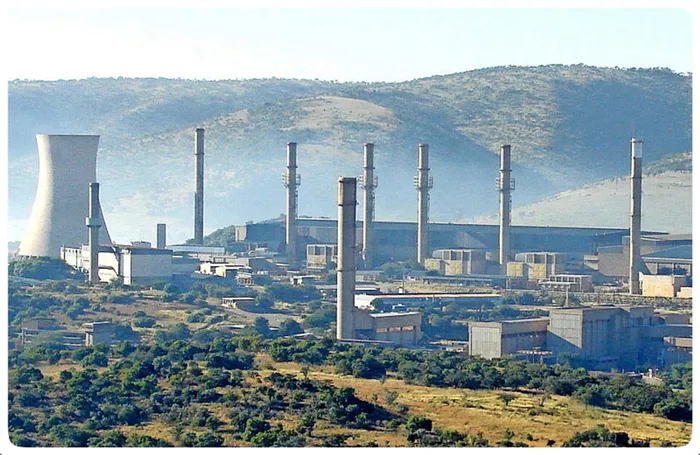ASP Isotopes plans JSE listing to enhance local investment opportunities
Radio Isotopes

The Pelindaba nuclear research facility outside of Tshwane. The Nasdaq-listed ASP Isotopes intends to reach a joint venture agreement with the state owned Nuclear Energy Corporate of SA to produce high-assay low-enriched uranium.
Image: Supplied
ASP Isotopes, which uses its own South Africa developed technology to enrich isotopes, plans to add to its 2022 Nasdaq listing with a listing on the Main Board of the Johannesburg Stock Exchange.
The company, owned by its CEO Paul Mann and US-based institutional global investment funds, develops technologies and processes for the enrichment of isotopes that can be used in the medical, semiconductor and nuclear industries, born out of years of research and development, originally developed in South Africa.
ASPI is a US incorporated company that has been listed on the Nasdaq since 2022. It has a market capitalisation in the US of $400 million, or R7.5 billion, and it plans to list on the JSE later this year, subject to regulatory approvals.
“While our investor base has been created in the US and Europe, the beating heart of our company is in South Africa, with 97% of our employees and all our operating assets being located in South Africa,” said ASPI chairman and CEO Paul Mann, who is also CEO of Quantum Leap Energy.
He said in an interview with BR the intention was not necessarily to raise capital with the JSE listing, but to also give South African investors an opportunity toinvest in the company that was, at its heart, South African.
“We have to thank our South African staff, service providers and regulators for helping us achieve all we have done over the last four years, and we owe it to South Africa to make our securities available to the local community,” he said.
Since its listing, ASPI has raised more than $100m to fund its growth and has constructed three isotope production facilities in Pretoria. It has successfully entered the global market and now employs over 150 people, 97% of whom are South African.
Some 19% of ASPI employees hold PhDs, and 41% have advanced degrees or higher, made up of scientists, chemists, engineers, operational and finance personnel.
Mann said ASPI’s initial focus was on the production and commercialisation of enriched Carbon-14, Silicon-28 and Ytterbium-176 (Yb-176). These isotopes were enriched via two processes: Aerodynamic Separation Process (ASP Technology); and Quantum Enrichment (QE Technology).
C-14 is used in the development of new pharmaceuticals and agrochemicals and acts as a tracer in the development stage, assisting pharma and agrochemical companies to see where in the ecosystem their products ultimately end up during trial periods. A multi-year take-or-pay contract had been signed with a Canadian customer.
Si-28 is used in the development of semiconductors and quantum computing. By using Si-28 in semiconductors, the speed of information flow is believed to increase exponentially. ASP has signed two commercial contracts with a US semiconductor company and a global industrial gas company.
Yb-176 is used to create radiotherapeutics that treat various forms of oncology. QE Technology is used in the enrichment process of Yb-176.
Mann said other future isotope enrichment opportunities exist by using ASPI facilities and technology, such as Xinc-68 and Xenon-129/136 for use in the healthcare market, Germanium 70/72/74 for the use in the semiconductor industry and Chlorine-37 for the use in the nuclear energy end market.
COO and co-founder Robert Ainscow said their goal was to use innovative technology to become an indispensable supplier of enriched isotopes to three multi-billion-dollar end markets, namely medical, semiconductors and nuclear energy.
Currently, Russia dominates global isotope production, with about 85% of stable isotopes being produced there
ASPI has a 51% stake in PET Labs, a radiopharmaceutical operations company focused on the production of fluorinated radioisotopes and active pharmaceutical ingredients, through which ASPI entered the downstream medical, isotope production and distribution market.
Quantum Leap Energy (QLE) planned to apply quantum enrichment technology to uranium to produce the essential fuels for next-generation nuclear power plants, said Mann.
“Furthermore, by enriching Uranium-235 (U-235) (to a low level), we will be at the forefront of the nuclear fuels supply chain, which will assist various developed energy markets, currently dependent on these fuels in a time where there is a global supply drought. These fuels will also be used to power next-generation Small Modular Reactors (SMRs),” he said.
“The application of these isotopes is truly ground-breaking,” said Mann. He said the company intended investing greatly in South Africa over the next three to four years, including in the development of four laser plants.
In the medical industry, there existed an opportunity to be one of the few producers in the undersupplied global medical isotopes market, which was anticipated to grow from $5.1bn in 2022 to $11.4bn by 2032, he said.
“This will be driven by the increasing prevalence of cancers, rising demand for personalised medicine and technological advancements in diagnostic imaging modalities,” said Ainscow in a statement. ASPI will benefit from increased regulatory approvals and R&D spending in the radiopharmaceutical sector, and a significant shortage of all medical isotopes worldwide,” he said.
The end market for medical isotopes includes nuclear imaging and oncology treatments for cancers such as prostate cancer and neuroendocrine tumors.
BUSINESS REPORT